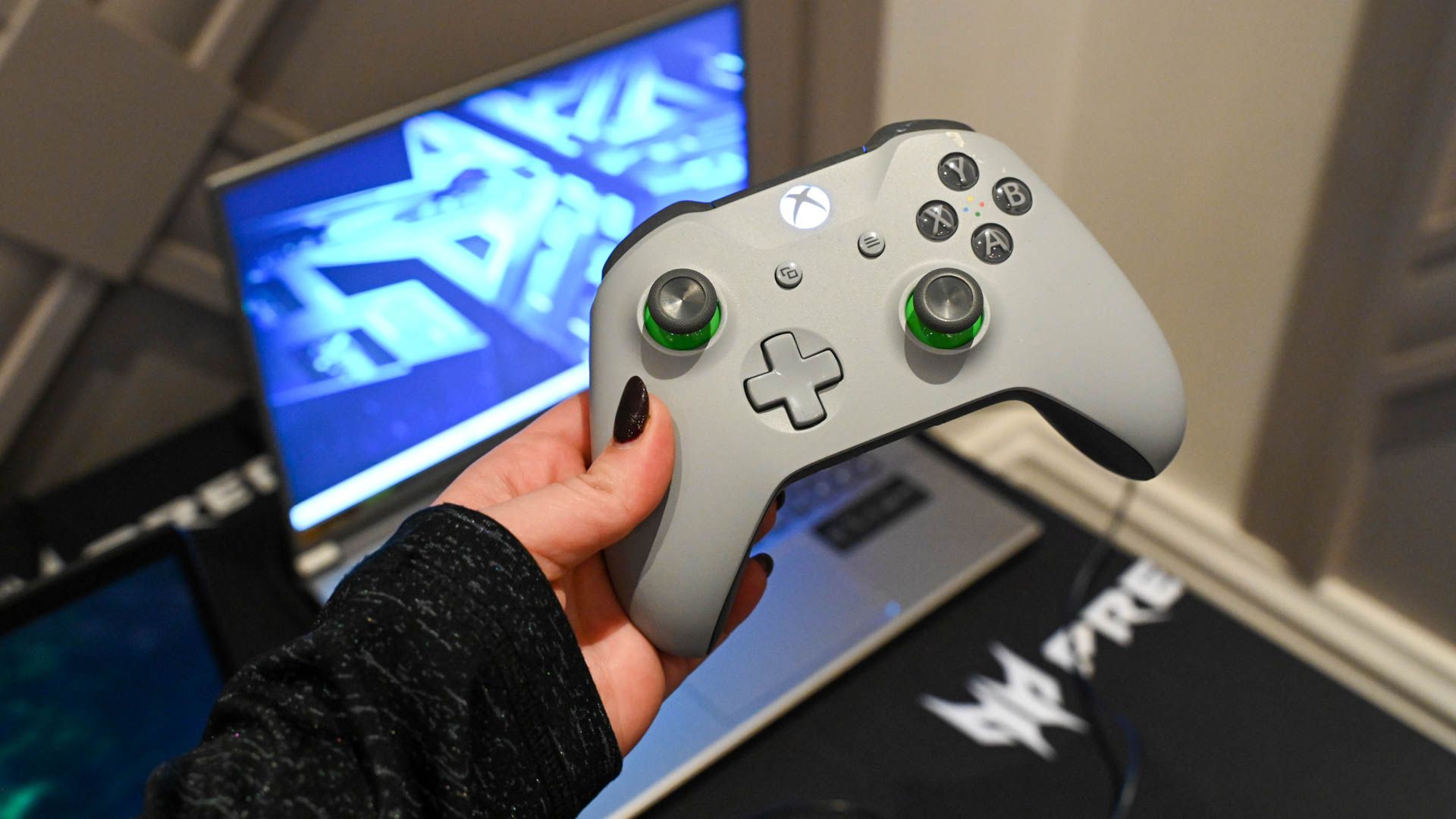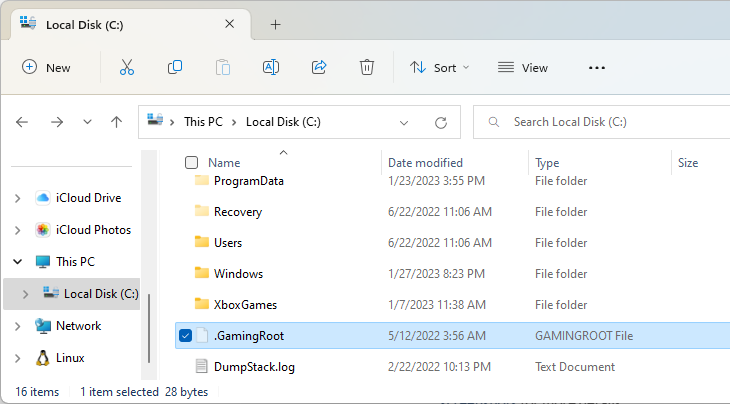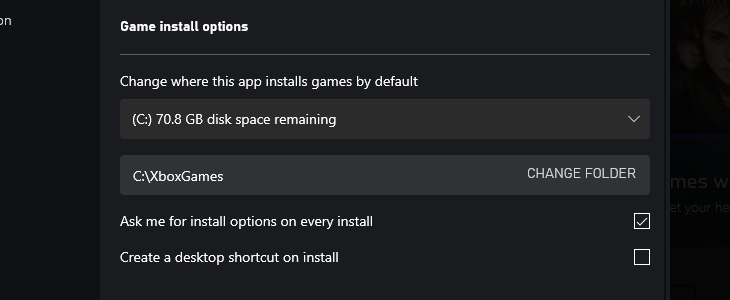Quick Links
Key Takeaways
The .GamingRoot file is created by the Xbox app on Windows 10 and Windows 11. The Xbox app uses a .GamingRoot file to identify drives it can install games on. You may have one or more .GamingRoot files if you use Xbox Game Pass.
The .GamingRoot file is created by Microsoft's Xbox app on Windows 10 and Windows 11. This is a real file---not a virus---and you shouldn't delete it. The Xbox app uses this file to identify drives it can install games on.
What Is the .GamingRoot File?
The Xbox app uses the .GamingRoot file to identify drives you can install games on. For example, if you have Xbox Game Pass and use the Xbox app to install PC games for Windows 10 or Windows 11, you will see one of these files on each drive you install games on.
The .GamingRoot file is normally hidden. You won't see it unless you've chosen to show hidden files in File Explorer.
If you do show hidden files you will likely see a .GamingRoot file on your C: drive as well as any other drives you've chosen to install Xbox games on. This may be a secondary internal drive or an external drive. For example, if you have a D: drive you install Xbox games on, you will also have a .GamingRoot file on your D: drive.
The file is located in the "root" of your drive. In other words, it's in C:\ or D:\, not in another directory on that drive. While the Xbox app may be installing games to the C:\XboxGames folder, it creates a .GamingRoot file at C:\.GamingRoot.
To see which drives you've configured to install games, open the Xbox app, click your name, click "Settings," and select the "General" category. Under "Game Install Options," you'll see a dropdown menu with a list of drives. All the drives in this list will have a GamingRoot file created on them by the Xbox app.
Can You Delete the .GamingRoot File?
We recommend against deleting this file. If you don't use the Xbox app or play games installed via the Xbox app at all, there's no downside to deleting it. However, if you do use the Xbox app or have Xbox Game Pass games installed, deleting the file may cause problems with launching your installed games or with installing new games.
The .GamingRoot file is very small and barely takes up any space. Windows reports it takes up 28 bytes of space on our system---it's almost an empty file. You won't free up any usable disk space by deleting it.
Since file doesn't take up much space, so we recommend ignoring it. If you find it distracting, you can always tell File Explorer to hide hidden files once again. (We hear you, though: We wish Microsoft's Xbox app wasn't cluttering our drives up with this file, too.)
While this file isn't a virus, we recommend scanning your PC with a trustworthy antivirus program if you're concerned it has a virus or other malware.
But Why Is It .GamingRoot and Not GamingRoot?
By the way, if you're wondering why the file has a period in front of it---in other words, why it's ".GamingRoot" and not just "GamingRoot"---this convention is from UNIX-like operating systems like Linux and macOS rather than Windows. On Linux and other UNIX-like operating systems, files with a period in front of their name are hidden by default.



